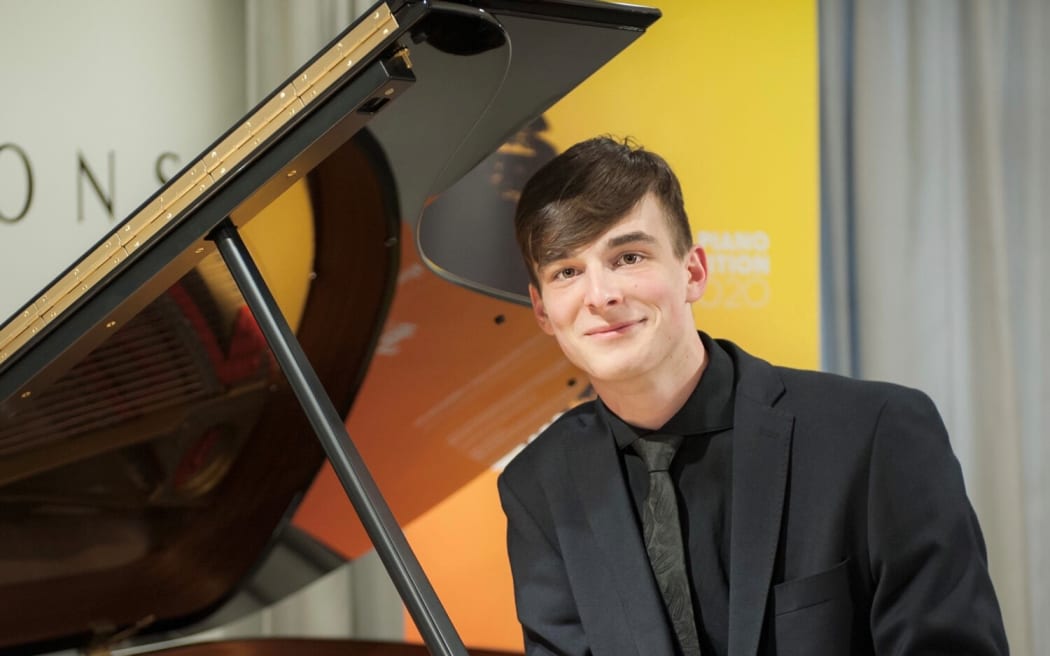
Otis Prescott-Mason Photo: Supplied / Otis Prescott-Mason
Otis Prescott-Mason has taken up reading. His latest book is Dante's Divine Comedy.
He thought if Dante's depiction of Hell and Heaven was good enough for Liszt, it was worth giving it a go.

Someone's idea of the Inferno. Photo: 123RF
Speaking to RNZ Concert host Bryan Crump, Prescott-Mason likens the Divine Comedy to a gigantic piece of music "with a hundred movements, or a hundred cantos, and so to read... a canto is like learning a movement of a suite for me".
"I read it through a few times, see what I can gather from it for myself, and then after I've put together my own picture I study the poetry line by line. What are the political references, what are the ancient historical references? Then, once I've put together this interpretation, I read it through again and it feels like performing a piece of music."
Sounds like this young Wellingtonian doesn't do things by halves.
In a few weeks in Christchurch, he'll be performing Liszt's mighty "Sonata in B minor" for the annual Christopher Marshall Concert in memory of the stalwart of the Canterbury classical music scene (some of you may have been to the concert series Marshall set up, Christopher's Classics).
Like Dante's Divine Comedy, the Liszt sonata is a massive work, stretched across a single movement that lasts the best part of 30 minutes.

Liszt: the original piano rock-star. Photo: Wilhelm von Kaulbach, Public Domain
Prescott-Mason has already performed it once, but he plans on coming back to it again and again. His relationship with a work like the B minor sonata is something he describes as a "musical journey".
His own musical journey began as a child to parents who, while not professional musicians, were pretty handy: his mother on the recorder, his father on the bagpipes.
Prescott-Mason began piano lessons as a five year old, but he didn't start enjoying the instrument until he was in his teens.
That's when he heard a piece that changed his life: Beethoven's "Pathetique" piano sonata.
"I had a coin-drop moment. It was a flick of the switch rather than a gradual process. I was sitting in school in my third-form Year 9 and I was just suddenly taken with a recording I listened to ... it was really sudden. From that moment on I just loved [the piano]."
Listening to Beethoven can change your life. Photo:
But here's the thing: Prescott-Mason is yet to perform the Pathetique in public. Perhaps, Crump suggests, because he doesn't feel ready yet to do this seminal work in his own life justice?
"I think that's true of every piece I play, but you could say especially true of that particular piece."
So can perfectionism can sometimes be the enemy of classical music making?
"I think it's helpful to aim for perfection, but while aiming for perfection I think it's useful to understand that it can't ever be achieved."
Prescott-Mason's imperfection has so far won him the Lewis Eady National Piano Competition (in 2022), a National Young Performer Award, and last year he was a Fellow at the World's Edge Festival in Wanaka.
Maybe for a bit of light relief (although only in subject material - the music is still pretty difficult), Prescott-Mason is playing nursery rhymes this weekend performing Ernst von Dohnányi's variations on "Twinkle Twinkle Little Star" with the Wellington City Orchestra.
We're pretty sure Prescott-Mason's star will shine brightly in the years to come, and we look forward to the day when he feels ready to go public with that life-changing Pathetique sonata.

